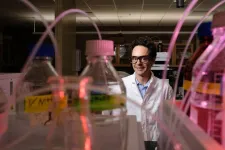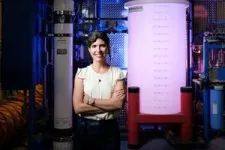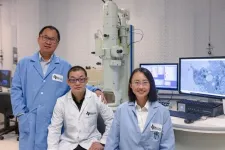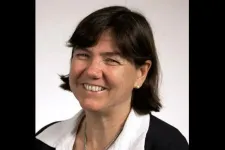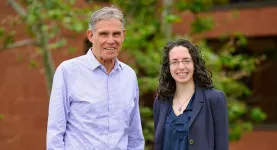(Press-News.org) The Colorado River, which provides drinking water to tens of millions of people and irrigation water to more than 5 million acres of farmland, has dropped by one-third in recent years. Arizona recently limited housing construction in the Phoenix area based on projections that groundwater will be unable to meet growing demand.
The University of Arizona has received $4 million for phase one of a project to improve water security and water reuse methods in the arid southwestern United States. Phase two will be awarded an additional $3 million in funding, with the possibility of another $3 million for phase three. Together with the University of Southern California and the University of Nevada, which each received grants of the same size, the university is launching the Consortium for Potable Water Reuse. The funding agency is the U.S. Army Engineer Research and Development Center's Construction Engineering Research Laboratory.
"We are the leading schools that do research on water reuse in the Southwest, which is where alternative water sources and potable use is needed," said grant principal investigator Andrea Achilli, a UArizona associate professor of chemical and environmental engineering and researcher at the university's Water and Energy Sustainable Technology, or WEST, Center. "What we want to do is to allow for self-sufficiency and resiliency in the Southwest."
The consortium will bring together experts in diverse fields to advance water treatment technologies, make water reuse systems more efficient and drive sustainable practices. The UArizona team, which includes researchers in chemical and environmental engineering, systems and industrial engineering, environmental science, and microbiology, will focus on using automation and decentralization to improve potable water reuse deployment and adoption.
"The University of Arizona's water programs are consistently ranked among the top in the world thanks to the incredible faculty and staff we have working in this vital area," said University of Arizona President Robert C. Robbins. "Their expertise will be key in ensuring potable water for Southwest communities as we face water usage cuts and historic drought. I am proud of our resourceful and forward-thinking faculty members in engineering and the WEST Center for building an interdisciplinary team to do this important work."
The Power of Decentralization
Achilli believes decentralized water treatment systems, which manage water at the neighborhood level – or, in densely populated areas, even the building level – are key to better enabling water reuse. Some cities and large companies, such as Intel, are already experimenting with this. Achilli draws a comparison to the growing popularity of home solar panels.
"Water is messy, but I think the way we are going to deal with water is the same way we are starting to deal with other major systems, like the electric grid," he said. "If we really want to enable water reuse, we need to transform the systems from centralized – like we've been doing for the past 100 years – into decentralized, autonomous systems."
Avoiding moving water back and forth between a neighborhood and a treatment plant saves energy, time and money. It also allows people to be more familiar with their water sources; for example, residential systems will only have residential pollutants, Achilli said.
"With this, we have a better idea of the contaminants coming into our systems and can tailor our treatment systems to efficiently remove them," said project co-principal investigator Kerri Hickenbottom, a UArizona assistant professor of chemical and environmental engineering. "Because we know the quality and quantity of our water resources, we will have more security and resiliency in our treatment systems. It's going to help us be in a position where we're not panicking about finding our next source of water."
The Role of Automation
In order for water treatment to be managed at the neighborhood level, Achilli said, it needs to be simple yet sophisticated. Right now, it's not. In fact, Achilli said, much of the software used in water management systems is outdated – and essentially none of it operates autonomously.
High-end systems, like the one used by Achilli and his team at the WEST Center, require a team of experts with a unique set of skills in experiments, programming, coding and analyzing systems.
Someday, autonomized decentralization could allow for in-house water reuse systems in individual houses or apartments. Achilli compares the idea of these in-house systems to washing machines, which anyone can easily operate at home without specialized skills.
"Nobody is an expert in washing machine technologies," he said. "We just use it, right? That's the level where we need to get to in order to really have decentralized systems."
Waste Streams and Workforce
When water is treated for potable reuse, some of it isn't recovered. Contaminated water goes into an advanced water treatment system that provides several barriers to contaminant rejection. Out the other side comes a stream of high quality potable water – about 80% of the original amount, at best – and a stream of concentrated wastewater. Current methods for managing waste streams, including evaporation ponds, brine concentrators or crystallizers, can be costly, time consuming and geographically limited.
Hickenbottom is focused on improved methods for waste stream management, including investigating the possibility of water circularity, which could reuse all elements of water and eliminate waste. Ideally, it would mean producing just one stream of highly treated water and a solid form of waste. The team is also examining ways to recover valuable resources from waste streams, such as minerals that can be used in products like fertilizers or semiconductors.
As they build a new vision for how to manage water in Arizona, the team members also want to develop the next generation of the workforce. This means educating researchers, such as doctoral students and postdoctoral researchers, who will develop new technologies. In collaboration with Jeff Prevatt, deputy director of the Pima County Regional Wastewater Reclamation Department, they also plan to train water sector employees to analyze data sets and work with advanced sensors, automation and controls.
"It's contributing to the Arizona economy, but we're also pushing the envelope nationally and saying, 'This is what a resilient community would look like with respect to water,'" Hickenbottom said.
END
Multimillion dollar consortium to address southwest water concerns
As traditional sources of water run low, concern around Arizona's water supply is growing. A team of researchers from three universities is working to address the problem by advancing water reuse techniques.
2023-07-14
ELSE PRESS RELEASES FROM THIS DATE:
Media Tip Sheet: Ecology of the Pacific Northwest and the Cascadia Bioregion
2023-07-14
Dozens of sessions at the Ecological Society of America’s upcoming Annual Meeting in Portland, Oregon, Aug. 6-11, will feature research on the ecology of the geographic and environmental region surrounding the conference venue: the Pacific Northwest and Cascadia Bioregion, which encompass a vast area stretching from northern California to southern Alaska.
The Pacific Northwest’s temperate rainforests are home to old-growth conifers and multiple threatened and endangered species. Its diverse marine and coastal environments host whales, puffins and vibrant kelp forests. The annual salmon runs in the region’s ...
Researchers’ sweeping discovery shows how kidney cells self-renew
2023-07-13
University of Texas at Dallas scientists have discovered a previously unknown “housekeeping” process in kidney cells that ejects unwanted content, resulting in cells that rejuvenate themselves and remain functioning and healthy.
The self-renewal process, which is fundamentally different from how other bodily tissues are thought to regenerate, helps explain how, barring injury or disease, the kidneys can remain healthy for a lifetime. The researchers described the mechanism in a study published April 17 in Nature Nanotechnology.
Unlike ...
Rensselaer researcher receives grant to study enzymes in deep sea organisms
2023-07-13
Rensselaer Polytechnic Institute’s Catherine Royer, Constellation Chair Professor of Bioinformatics and Biocomputation at the Shirley Ann Jackson, Ph.D. Center for Biotechnology and Interdisciplinary Studies (CBIS) and professor of biological sciences, has received a grant of over $400,000 from the National Science Foundation to investigate enzymes from organisms living in deep sea environments.
“Ultimately, I hope to better understand how these enzymes function under the high pressure that is present in the deep sea,” said Royer. “They also thrive in high or low temperatures. Biomolecules from the surface do not have the ability to survive these extreme ...
Penn State researchers receive $1M NSF award to develop hemp-based supply chain
2023-07-13
MIDDLETOWN, Pa. — An interdisciplinary team of researchers at Penn State is part of a project that recently received a $1 million National Science Foundation (NSF) Engines Development Award. The award will fund the development of the Pennsylvania Industrial Hemp Engine (PAIHE), which will support the manufacture and deployment of bio-based products for application in green building construction, packaging, fabrics, renewable energy and land remediation.
Launched by NSF’s new Directorate for Technology, Innovation ...
James Webb Telescope catches glimpse of possible first-ever ‘dark stars’
2023-07-13
Stars beam brightly out of the darkness of space thanks to fusion, atoms melding together and releasing energy. But what if there’s another way to power a star?
A team of three astrophysicists — Katherine Freese at The University of Texas at Austin, in collaboration with Cosmin Ilie and Jillian Paulin ’23 at Colgate University — analyzed images from the James Webb Space Telescope (JWST) and found three bright objects that might be “dark stars,” theoretical objects much bigger and brighter than our sun, powered by particles of dark matter annihilating. If confirmed, dark stars could reveal the nature ...
Multidisciplinary team reduced hypothermia in NICU babies during and after surgery
2023-07-13
The percentage of infants from the neonatal intensive care unit (NICU) experiencing hypothermia upon operating room (OR) arrival and at any point during the operation decreased from 48.7% to 6.4% and 67.5% to 37.4%, respectively, after implementation of a multidisciplinary quality improvement project at Ann & Robert H. Lurie Children’s Hospital of Chicago. The project and its success were featured in the journal Pediatric Quality and Safety.
About one-third of infants admitted to children’s hospitals’ NICUs require surgery and ...
Argonne engineers to drive innovation with three GAIN funding awards
2023-07-13
Argonne is shaping the future of clean and reliable energy solutions.
Research into nuclear energy is gaining attention as a critical piece of the solution to climate change. As part of this trend, nuclear engineers at the U.S. Department of Energy’s (DOE) Argonne National Laboratory have received three new funding awards from the Gateway for Accelerated Innovation in Nuclear (GAIN) initiative. These awards recognize the valuable contributions of Argonne’s world-class nuclear engineers and facilities in this field.
Among ...
C-Path and Vivpro formalize partnership to accelerate drug development
2023-07-13
TUCSON, Ariz., July 13, 2023 — Critical Path Institute (C-Path), a leading global nonprofit committed to expediting drug development through the acceleration of regulatory-endorsed solutions, today announced a newly formalized Memorandum of Understanding (MOU) with Vivpro, an industry-leading provider of a revolutionary biointelligence software platform and innovative services. The partnership will enhance C-Path’s core competencies in accelerating drug development, by utilizing advanced data analytics and deep machine learning insights offered by Vivpro to further revolutionize ...
Sanford health rare disease data registry partners with C-Path’s RDCA-DAP, cure Mito Foundation to aggregate rare disease data in platform
2023-07-13
TUCSON, Ariz., July 12, 2023 — Critical Path Institute (C-Path) announced today that the Coordination of Rare Diseases based at Sanford Research (CoRDS), in partnership with Cure MITO, will contribute its mitochondrial disorders data from its international patient registry to the C-Path-managed Rare Disease Cures Accelerator-Data and Analytics Platform (RDCA-DAP®).
RDCA-DAP provides a centralized and standardized infrastructure to support and accelerate rare disease characterization targeted to accelerate clinical drug development. Additionally, the platform advances best practices to support the rigorous conduct of natural history ...
Scripps Research receives momentous award from NIH to lead key programs in national All of Us Research Program
2023-07-13
LA JOLLA, CA—Scripps Research announced today that the National Institutes of Health (NIH) has renewed funding for its Translational Institute to continue its work enrolling and engaging participants in the All of Us Research Program. The initial funding of $54 million will support Scripps Research Translational Institute’s work with a nationwide consortium to help build one of the largest, most diverse health research resources of its kind. The project is expected to last five years, with anticipated total funding ...
LAST 30 PRESS RELEASES:
Science reveals why you can’t resist a snack – even when you’re full
Kidney cancer study finds belzutifan plus pembrolizumab post-surgery helps patients at high risk for relapse stay cancer-free longer
Alkali cation effects in electrochemical carbon dioxide reduction
Test platforms for charging wireless cars now fit on a bench
$3 million NIH grant funds national study of Medicare Advantage’s benefit expansion into social supports
Amplified Sciences achieves CAP accreditation for cutting-edge diagnostic lab
Fred Hutch announces 12 recipients of the annual Harold M. Weintraub Graduate Student Award
Native forest litter helps rebuild soil life in post-mining landscapes
Mountain soils in arid regions may emit more greenhouse gas as climate shifts, new study finds
Pairing biochar with other soil amendments could unlock stronger gains in soil health
Why do we get a skip in our step when we’re happy? Thank dopamine
UC Irvine scientists uncover cellular mechanism behind muscle repair
Platform to map living brain noninvasively takes next big step
Stress-testing the Cascadia Subduction Zone reveals variability that could impact how earthquakes spread
We may be underestimating the true carbon cost of northern wildfires
Blood test predicts which bladder cancer patients may safely skip surgery
Kennesaw State's Vijay Anand honored as National Academy of Inventors Senior Member
Recovery from whaling reveals the role of age in Humpback reproduction
Can the canny tick help prevent disease like MS and cancer?
Newcomer children show lower rates of emergency department use for non‑urgent conditions, study finds
Cognitive and neuropsychiatric function in former American football players
From trash to climate tech: rubber gloves find new life as carbon capturers materials
A step towards needed treatments for hantaviruses in new molecular map
Boys are more motivated, while girls are more compassionate?
Study identifies opposing roles for IL6 and IL6R in long-term mortality
AI accurately spots medical disorder from privacy-conscious hand images
Transient Pauli blocking for broadband ultrafast optical switching
Political polarization can spur CO2 emissions, stymie climate action
Researchers develop new strategy for improving inverted perovskite solar cells
Yes! The role of YAP and CTGF as potential therapeutic targets for preventing severe liver disease
[Press-News.org] Multimillion dollar consortium to address southwest water concernsAs traditional sources of water run low, concern around Arizona's water supply is growing. A team of researchers from three universities is working to address the problem by advancing water reuse techniques.
